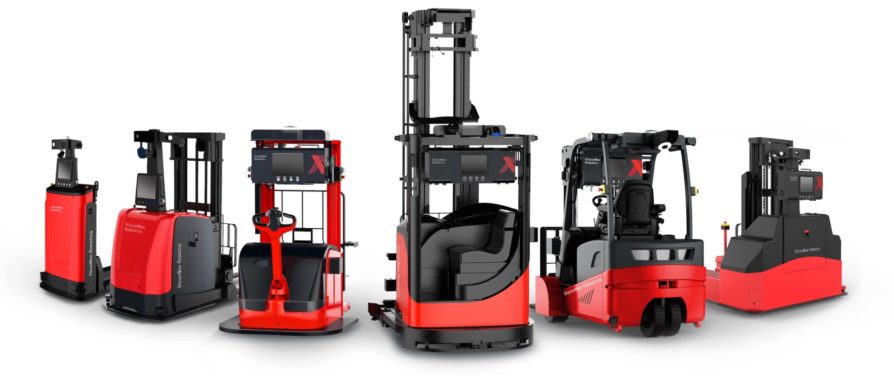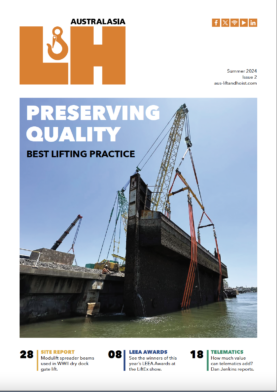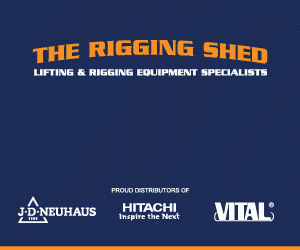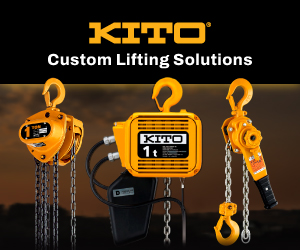)
VisionNav takes automated forklifts to Europe
China-based VisionNav is introducing its range of fully automated, vision-guided forklift trucks and intelligent operating systems to the European market.
VisionNav Robotics was co-founded in 2016 by a team from The University of Hong Kong and The University of Tokyo, and headquartered in Shenzhen, is the world’s leading automated guided industrial vehicles. The company is committed to automated material handling with visual AI technology.
The VisionNav range includes driverless counterbalanced forklift trucks, reach trucks, stackers and tow tractors and, in keeping with the company’s global marketing strategy, VisionNav Robotics is looking to appoint distribution partners throughout Europe.
Nestle, DHL and Walmart are among the high profile businesses to have already adopted the VisionNav driverless truck system, while countless small and medium sized forklift users are also benefiting from the solution.
In simple terms the ‘vision-based’ navigation technology at the heart of VisionNav’s operator-free forklifts uses a vehicle-mounted camera to sense the environment in which the vehicle is operating. Information concerning the structural design and storage system lay-out of the facility where trucks are deployed is stored as off-line maps which the visual navigation system matches with real time images received from the camera to navigate the forklifts efficiently and safely around the store. With multiple vehicles controlled by the system, the trucks are directed to their next location via the shortest, fastest and safest route for optimum throughput performance.
Visual navigation technology is not only highly efficient, it is quick and easy to install and brings a rapid return on investment. The highly flexible technology allows driverless industrial trucks to be adopted with minimal disruption to a site’s existing intralogistics process and, typically, ROI is achieved after a period of 18-24 months.
Capable of operating outside and inside in even the most dimly lit buildings, VisionNav driverless forklifts undertake every type of task that would be expected of a traditional manually operated forklift – including vehicle loading and unloading, pallet put-away and retrieval in both standard and very narrow aisle racking configurations, as well as pallet and stillage movements throughout the warehouse.
In addition to the obvious savings in labour costs that driverless forklifts bring, other benefits delivered by VisionNav automated lift trucks include: reduced damage to goods, racking and trucks; greater picking accuracy; and more efficient use of the available storage space.
Established in 2016, VisionNav Robotics is among the fastest-growing operator-free industrial vehicle manufacturers in the world. Between the beginning of 2019 and 2021 the company’s turnover increased ten-fold while from 2020-21 order volume grew by more than 300% year-on-year. During the same period, VisionNav’s typical contract value increased by 150% with new business from existing clients accounting for nearly half of the company’s order intake.
Jason Zang, VisionNav Robotics’ head of sales – Europe, said, “When it comes to running a lift truck fleet, the forklift driver is often the biggest cost. Salaries, bonuses, training and myriad other expenses combined with hidden extras such as the damage to goods or a building’s infrastructure caused by a carelessly driven truck or, worse still, injuries to personnel, all add up to a considerable sum.
“In addition, across the world there is a shortage of forklift drivers, so it is not surprising that more and more companies are adopting automated materials handling equipment (MHE) to optimise the efficiency of their warehouse intralogistics processes.
“The VisionNav range of driverless forklifts uses 5G communication and artificial intelligence to deliver flexible unmanned lift truck technology that can be easily adopted by every truck user to upgrade their warehouse operations.









